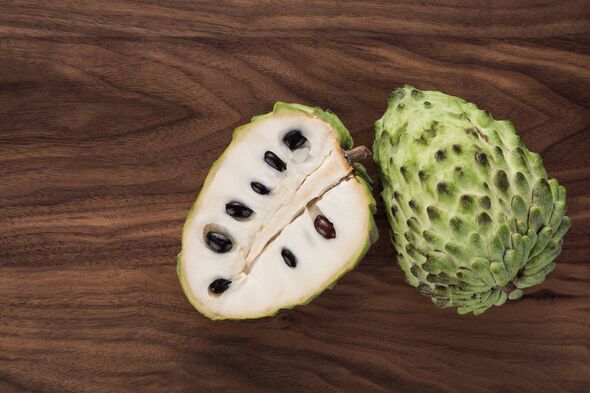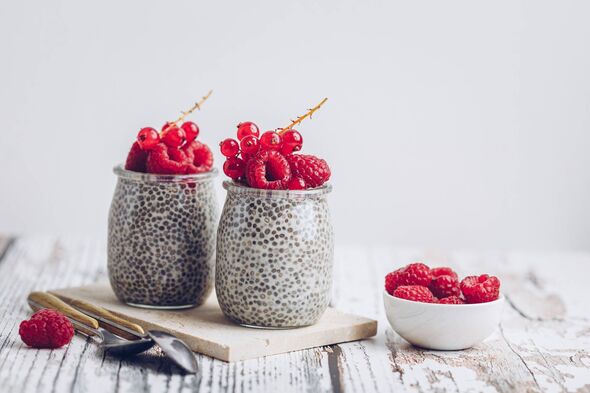
A nutritious mix of fruits, vegetables, nuts, seeds, and meat is important for your well-being and can greatly reduce the chances of developing serious, long-lasting illnesses such as heart disease, diabetes, strokes, and cancer.Although there are a number of beverages that may also support kidney health.
But how do you identify which ones areThe most nutritious foods to eat?There is a logical approach behind the chaos, thanks to a list created by scientists. In this research, more than 1,000 foods were assessed by researchers, each receiving a nutritional rating.
The higher the score, the more probable it is that the food will meet but not go beyond your daily requirements.requirements for nutrients when consumed along with other foods.
- Unusual breakfasts that everyone should try to 'live to 100' - not eggs
- Stop putting mayonnaise on tuna sandwiches - there's a component that's more delicious
The highest-rated food scored 97 out of 100 - it isn't meat, fish, fruit, or vegetables, but it can be easily found in every supermarket,reports the Mirror US.
Crowned as the best option, this food is "high in monounsaturated fats" and "supports heart health and could assist in managing diabetes."
There is growing consensus among scientists that a balanced diet and a healthy gut microbiome play essential roles in general well-being. Increasingly, experts describe the microbiome as a "second brain" and emphasize its importance not just for physical health, but also for mental well-being and immune function. Naturally, the foundation of a nutritious diet involves eating a wide range of wholesome foods while minimizing intake of unhealthy and highly processed items.

Although all the foods on this list have high nutritional ratings, it would not be advisable to depend exclusively on these 10 items for the remainder of your life.
1. Almonds
Score: 97/100.
The most nutrient-dense food in the world isn't a fruit or vegetable, but a nut. Almonds are recognized as the healthiest option, scoring an impressive 97 out of 100 in terms of nutritional quality.
These popular treats are rich in monounsaturated fats, promote heart health, and could potentially assist in managing diabetes. Almonds are packed with antioxidants, protein, and fiber, along with vitamins and minerals like magnesium. They contain a variety of nutrients that protect the heart, such as unsaturated fats, phytosterols, magnesium, vitamin E, copper, and manganese.

2. Cherimoya
Score: 96/100.
Cherimoya can be considered the "healthiest fruit in the world" according to this ranking. On the outside, it is a green, cone-shaped fruit with a hard skin, and on the inside, it has a smooth, sweet flesh that can be eaten with a spoon and is sometimes served cold, similar to a chilled custard. Healthline states that cherimoya is "packed with antioxidants" and "high in fiber, vitamins, and minerals," adding that "this special fruit could boost immunity, lower inflammation, and benefit eye and heart health."
However, it warns that "some sections of cherimoya may have toxins that could harm your nervous system if eaten in large quantities." Antioxidants fight free radicals in your body that can cause inflammation associated with various long-term illnesses, such as cancer and heart disease. Cherimoya also provides a great source of vitamin B6, which can enhance your mood.
It also contains a high amount of fiber and is noted for having anti-cancer benefits due to its flavonoids, "which have been found to inhibit the growth of cancer cells in laboratory studies," as reported by Healthline.
3. Ocean perch
Score: 89/100.
The highest nutritional value fish.
This offshore species is also known as rockfish and has low levels of saturated fats.
But that's not all – this fish provides an amazing source of:
4. Flatfish
Score: 85/100.
Flatfish such as turbot, plaice, halibut, sole, and brill are generally free of mercury and rich in omega-3 fatty acids, which may protect against heart disease and improve cognitive function.
Flatfish serve as an important source of vitamin D and the essential nutrient vitamin B1.

5. Chia seeds
Score: 85/100.
These are small black seeds that can be added to yogurt, mixed into smoothies, or used to prepare chia pudding. Although they are tiny, chia seeds offer a significant amount of beneficial nutrients, such as fiber, protein, alpha-linolenic acid, phenolic acid, and vitamins.
They also include caffeic acid, an antioxidant capable of combating inflammation within the body.

6. Pumpkin seeds
Score: 84/100.
Pumpkin seeds, together with other types of squash seeds, are recognized as some of the healthiest foods globally. They rank among the top plant-based sources of iron and manganese.
7. Swiss chard
Score: 78/100.
Swiss chard, a leafy vegetable from the beet family, is full of nutrients, including uncommon betalains that have antioxidant effects. It is also an excellent source of vitamins A, C, K, and E, with a significant amount of vitamin K, which helps in blood clotting and supports bone strength. Swiss chard also has a special compound thought to help regulate blood sugar by reducing the rate at which carbohydrates are digested.
8. Pork fat
Score: 73/100.
Interestingly, pork fat appears on the list, with a score of 73 out of 100, placing it above many fruits and vegetables.
It contains a higher amount of unsaturated fats compared to lamb or beef, resulting in increased levels of omega-3 fatty acids. It is also rich in B vitamins and essential minerals.
9. Beet greens
Score: 70/100.
The leafy portion of the beetroot plant, known as beet greens, is rich in nutrients.
10. Snapper.
Score: 69/100
Third in the top 10 fish, red snapper is a highly valued member of the snapper group, with its throat considered a gourmet treat. Nevertheless, even though they offer health advantages, these fish may contain dangerous toxins such as elevated mercury and ciguatera toxin, which frequently causes food poisoning from seafood sourced in warmer regions.